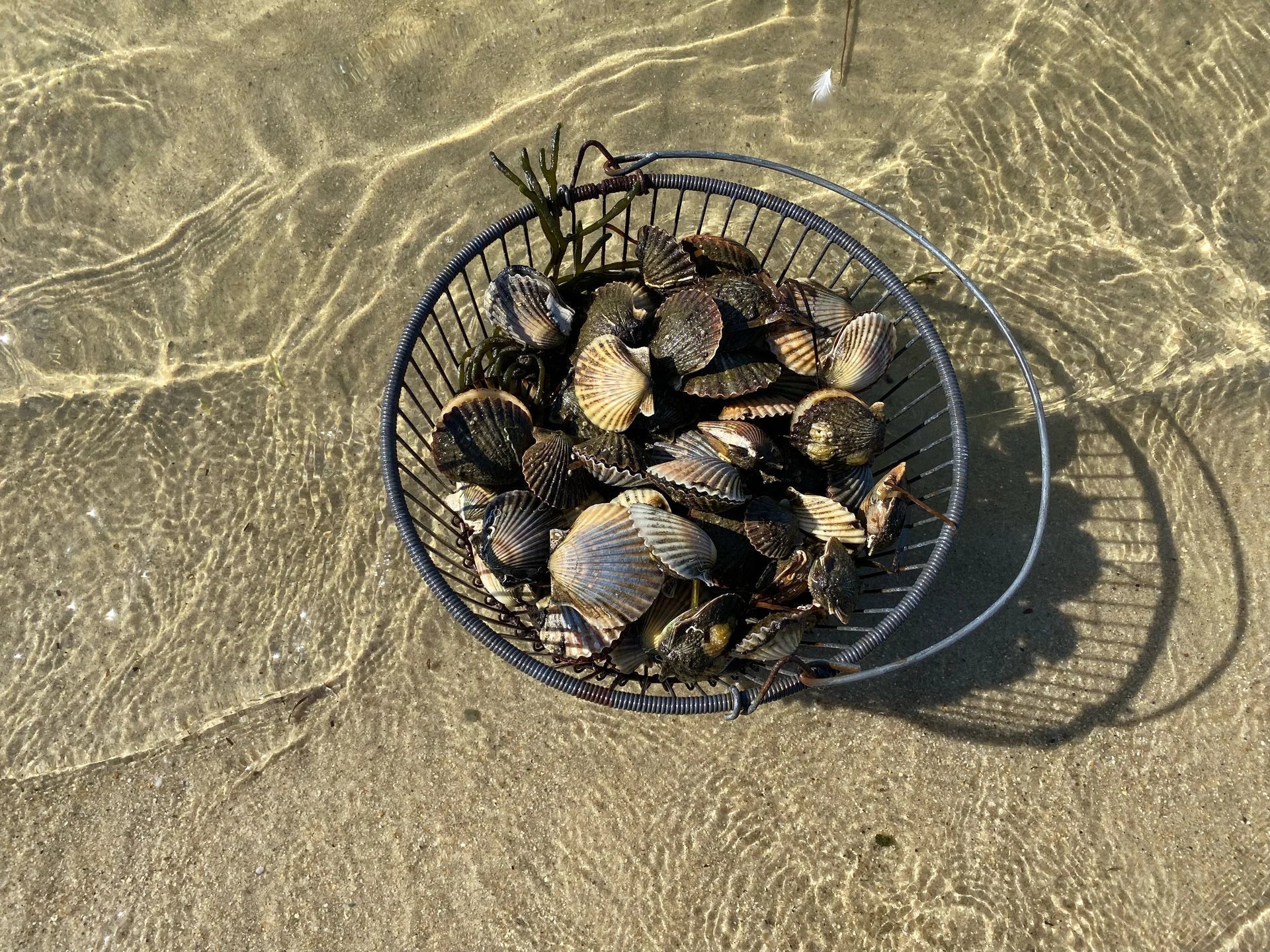For most of my life, scalloping existed only as something delicious that arrived on a plate—pan-seared at a restaurant, delicate and sweet, the essence of Nantucket in a single bite. The process of actually harvesting them? That remained a complete mystery. I had, of course, heard my father's stories: long, frigid days out on the water with a man named Bruce, leaving before dawn in the biting wind. My dad, who spent more than forty years as a carpenter, claimed scalloping was the most challenging work he had ever done. After twelve hours at sea, he would return home only to face the task of shucking—slippery shells, sharp knives, and the constant threat of sliced fingers. His tales made scalloping sound less like a romantic island tradition and more like a punishment reserved for the truly tough. Suffice to say, I never felt compelled to learn more.

That all changed on a crisp October Saturday three years ago, when my husband announced that the five of us—him, me, and our three sons—would be going scalloping. And not just any scalloping. We would be diving for them. Not raking, which seemed far more civilized and could conceivably be done in a wool hat and sweater, but wetsuit diving. For someone who refuses to swim in the ocean even in August, this was not exactly appealing. But then came the silver lining: I had to shop for gear. At Force Five I eagerly bought my first wetsuit, gloves, booties, and hood. Once the investment had been made, there was no turning back.
The day could not have been more beautiful. The harbor shimmered like glass as we motored out from Monomoy toward Coatue. Most of the sailboats had already been hauled for the season, and the quiet houses along the shore, shutters drawn, seemed to remind us that scalloping belongs to autumn.
The first challenge came before we even touched the water: helping three boys into wetsuits. If you've ever dressed children for skiing or hockey, imagine that—but wetter, colder, and with more yelling about who stole whose mask or flippers. At last, everyone was zipped, suited, and begrudgingly ready.


As the ever-practical mother, I let everyone else dive in first, ensuring that I spent as little time as possible submerged in the 55-degree water. Finally, with no excuses left, I plunged in. And immediately popped back up, thanks to the buoyancy of the wetsuit. Diving, it turns out, requires some technique. But when I managed to press my face into the water (a shock I won't soon forget), the view below astonished me: scallops everywhere, scattered across the sandy bottom. With a strong kick I could dive, grab a scallop (or two, if I was quick), and be bounced back to the surface in triumph. We all dove again and again, unable to stop, as if each scallop were some kind of buried treasure. And perhaps, in a way, they were.


By the time we climbed back into the boat, we had two full baskets of scallops. The boys were delighted with themselves, and I—who had dreaded the entire endeavor—was the last to climb back aboard.

Of course, bringing scallops home is only half the work. My husband patiently taught me the art of shucking: sliding the knife between the shells, cutting the muscle that holds them together, scraping away the frills and grit to reveal the clean, pearl-white morsel inside. Once I got the hang of it, I found it oddly satisfying—meditative, even. I poured myself a glass of wine and on the back deck for two hours, shucking away while admiring the fruits of my labor.
That night, I seared the scallops to a golden brown and tossed them with pasta in a simple, cream sauce. The dish was beautiful in its simplicity. And I, who had once sworn scalloping was not for me, couldn't help but feel a small swell of pride. It turns out that tradition, no matter how mysterious at first, can weave its way into your life when you least expect it.

About the Author: Bess Clarke is the CEO of Nantucket Looms and a lifelong Nantucketer.


